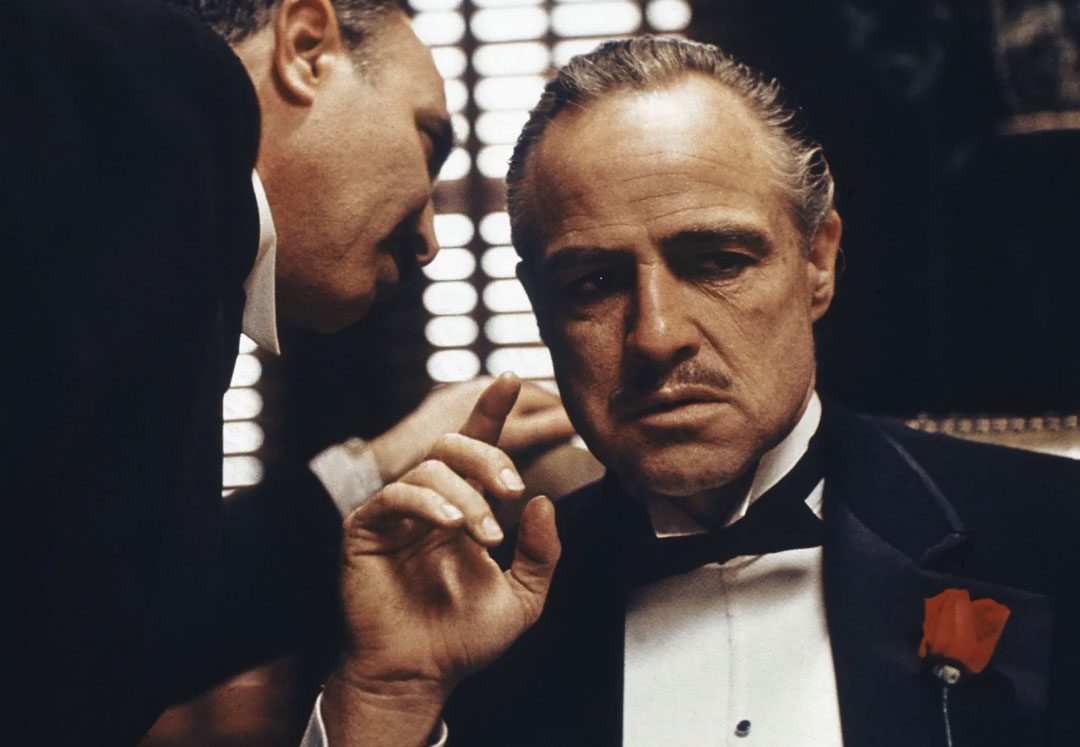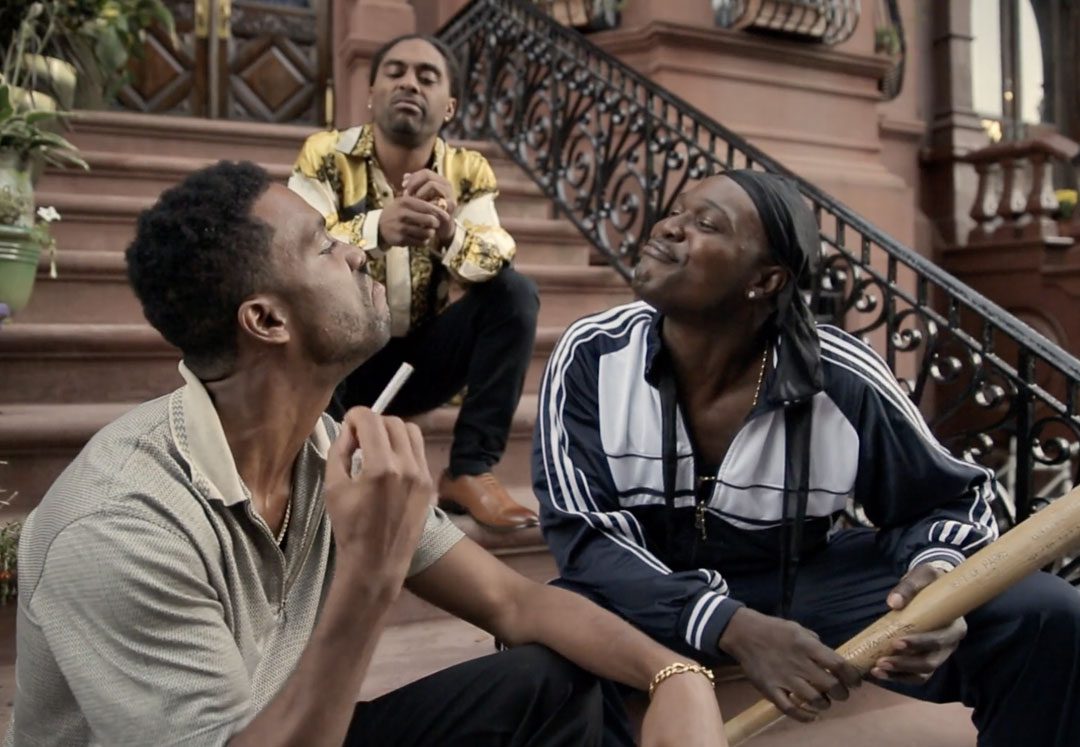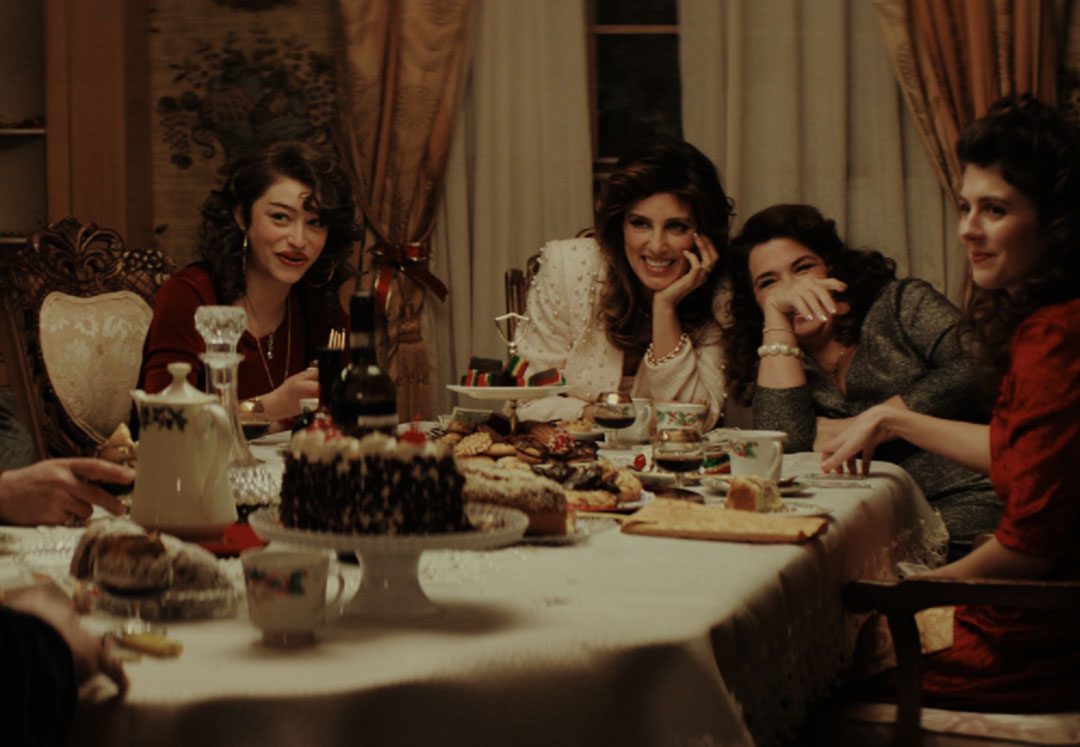Entertainment

Accento
The mobster genre: new characters unlocked
Words by Kristal Trotter
Are our hands tied, or can we take this crime fiction in a new direction?
Conversations on representation and whether the images we consume are harmful, hopeful, or truthful in any way, will always be an important topic of discussion. The catch is that it all depends on who you talk to, because good representation can mean different things to different people. Progress can sound like a setback to some, or not enough headway to someone else. New to the depiction of Italians in American media, I find myself consuming this content with a mix of surprise, curiosity and irritation, a concoction of feelings coming at me from all directions, fueled by encounters with people who have their own idea of what an Italian person looks like, sounds like, and acts like. Stereotypes take a new form when moving abroad, aspects of your identity deemed ordinary in your home country – and that bring comfort outside of it – are now the only things you are reduced to. A reduction that leaves out your talents, your dreams and your dignity; it keeps the food, the language and the mannerisms, all generalized so not to exclude any Italian from this monolith. It’s safe to say that our sauce has been reduced too much. A result of this generalization is when an Italian accent triggers someone’s Mamma mia, lets-a go! best Super Mario Bros. impression. The Italian-American caricature hailed from the Brooklyn of Shigeru Miyamoto’s mind, is definitely not a point of contention in Italy, but it catches Italians off-guard when on the receiving end of the pop culture aftermath of this Japanese characterization.
With The Super Mario Bros. Movie making more than $1 billion USD at the worldwide box office, the demand to which the entertainment industry is catering its content is an aspect that shouldn’t be overlooked. Chris Pratt cast as Mario’s voiceover is not what concerns me, it’s the kind of Italians the public wants to see, that does.
There seem to be two kinds of Italians that people have in mind, and to be perceived as the joyful and funny Italian who only thinks about pasta and espresso one moment, then the intimidating mobster you don’t want to mess with the next, can happen all too quickly.

The Godfather-verse is cemented in pop culture history and seared into everyone’s memory, with entertainers referencing and impersonating old school mobsters, and audiences taking a liking to an underdog who made it to the top, now rich, powerful and connected. But praise for the elevated portrayal of the immigrant story of Don Corleone and his family from New York City is bittersweet for Italian-Americans, because it comes with strings attached to the Mafia, a shadow that has followed Italian immigrants since setting foot in America. Stanley Tucci’s recent remarks on his ten-year stance of turning down stereotypical Italian-American roles, so as not to contribute to the Hollywood narrative that all Italians are criminals, gives us a chance to brush up on the history of Italians in America, and how the American gaze has played a role in the mobster movie genre we all glamorize today.
‘The Italian Americans,’ a four-part PBS documentary written and produced by John Maggio and narrated by Tucci, starts with Sicilian immigrants in New Orleans at the end of the Civil War. The loss of free labor by enslaved African-Americans provided an opportunity for Sicilian immigrants on the sugar cane fields of Louisiana. The French Quarter rapidly overflowed with Sicilian families who called it Little Palermo, and the local newspapers frequently reported about the crime in these poor communities “with the entertainment of dime store crime novels,” as Tucci describes it. The perception of southern Italians having an inherent predisposition to crime is solidified with the assassination of the police chief of New Orleans, David Hennessy. The theory of the prosecution that stated that the Italian men charged with Hennessy’s murder were part of a secret society, was highly publicized, and it’s in the 1890s that the word ‘Mafia’ makes its first appearance in the newspapers. This preconceived idea that Italians where inherently violent, and that they exported their criminal traditions to America, now awaited at the gates of Ellis Island, through which three million southern Italian immigrants crossed in the first two decades of the 20th century. In the 1950s, tv screens across the country were inundated with reports of a government crackdown on organized crime, broadcasting public interrogations of high profile criminals who made their fortune in the 1920s during the Prohibition era thanks to rackets, gambling and bootlegging, and who then found avenues of success and power after the end of Prohibition in 1933. The public’s fascination with the image of the Italian gangster was building up, and fast forward to today, almost anybody has at least one favorite mobster movie in their collection.

When my mind wanders in unexplored Hollywood territory, to imagine Italian-American actor Giancarlo Esposito as a Don is tempting, but my imagination falls short when trying to picture a Black Italian-American mobster, and the reason for this is twofold. Esposito doesn’t fit people’s idea of what an Italian looks like, and in an interview with Chazz Palminteri, Esposito said that he had to find himself, away from the casting directors and people’s expectations of who he should portray. Esposito had to claim his place in Hollywood and show everyone that he had the talent to be colorless, and in taking back control he created a niche for himself. He also had to master a Spanish accent in order to find work as an actor. In addition to this and based on what we see on screen, there are character traits of an Italian-American gangster that my mind conveniently swept under the rug, but thankfully, Shaka King’s racial satire ‘Mulignans’ gave me a reality check. A multi-layered short that slaps you in the face with commentary on gentrification, patriarchy, sexism and racism, King reclaims an Italian-American slur directed at Black people, and throws it back at the audience, showing how we’ve accepted the casual racism in mob movies. The mannerisms and the dialog of the three fictional Black Italian-American men sitting on the stoop are the complete opposite of the calm, soft-spoken and cold-bloodedness of Gustavo Fring – the fictional Chilean-American businessman and major narcotics distributor in the Breaking Bad franchise that Esposito is most known for – but are indeed a caricature of the Italian-American gangsters we see on tv. King’s idea was inspired by the “there goes the neighborhood” scene in ‘A Bronx Tale,’ where young Black men riding their bikes through an Italian neighborhood get attacked by Italians and manage to escape. By design, this short is meant to upset the viewer and spark conversations on many levels.
8 years have passed since ‘Mulignans’ made its debut at Sundance in 2015, and since recent mobster movies aren’t as iconic as the ones from the 1970s, 1980s, 1990s and early 2000s, I wonder if Black audiences still glamorize these characters the way they used to.
Vincent D’Onofrio, like Tucci, steered clear from stereotypical Italian-American roles, and embraced characters who showed the complexities of the human experience. The role of Italian mobster Vincent Gigante in the TV series ‘Godfather of Harlem‘ is an exception D’Onofrio decided to take on. The overt racism of this character would not have made it his ideal role to play – the actor once turned down a role offered to him by director John Singleton because the character was too racist – but in a storyline that deals with the 60s and the civil rights movement, it was important for D’Onofrio to show a person who is threatened by the rise of the Black community, and who is one of the many symbols of oppression that Bumpy Johnson, played by Forest Whitaker, has to overcome. With a series like this, crime fiction is no longer exclusively about the rise to power and clean-cut good or bad situations, it’s also about the actions we take when a way of life is at stake.
And what happens when characters are no longer out of sight and out of mind, like the women in your favorite mobster movie? Writer, actress and now director, Jennifer Esposito made her directorial debut this year with ‘Fresh Kills,’ a story that shows the female perspective of the Italian-American mafia. In an 80s-set Staten Island, Francine, a mob wife, and her two daughters, Connie and Rose, live with the realities of being a Mafia family, and they deal with this in different ways. Inspired by her personal experiences growing up around similar families, Esposito gives context to the loyalty, frustration, violence and distrust of these environments. With misleading headlines framing this movie as a feminist mafia film – you won’t see women calling the shots in place of the men – it’s the story of a girl trying to find her voice in a male dominated world, mafia genre or not. Having been assigned stereotypical roles throughout her career, Esposito understands very clearly that our culture is shaped by our media, and the stereotypes we make is a big responsibility of the entertainment business. By crowdfunding this release via Upstreams’ new model of film funding, and owning the narrative, Esposito is doing her part to make a change.
In a podcast episode of ‘It’s Been A minute,’ African American Studies professor Darieck Scott said “fantasies that communities involve themselves in overtime do change consciousness and changes our social reality,” adding that “there are a bunch of fantasies that created the reality we have today. If you can change consciousness with sustained fantasies, you can change reality.” The Italians everyone wants to see on screen are so painfully limited and claustrophobically confined in monolithic expectations, that even the Italian community would be surprised at its diversity should they see themselves represented. What are the stories we can tell and who will they impact when new characters come into play? It all depends on who you talk to.

If you like this content,
Please consider supporting us!
Please consider supporting us!
Accento operates as a self-funded project, and every new membership, purchase, or reshare plays an important role in our growth and content creation.


